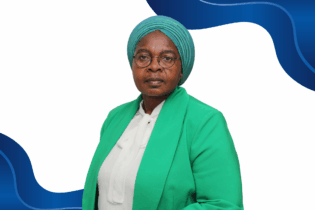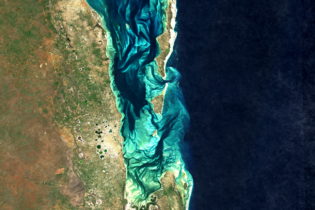
Plans to connect 22 million South Africans to the internet by 2020 are underway.
Known as ‘Internet for All’, the initiative is a partnership between the Department of Telecommunications and Postal Services and its social partners, and the World Economic Forum (WEF).
The Internet for All South Africa Steering Committee will be launched in June, with the aim to identify areas with the highest connectivity needs and channel resources to provide skills in those areas.
Telecommunications and Postal Services minister Siyabonga Cwele tabled this and other plans when he delivered his department’s budget vote in Cape Town on Wednesday.
He said the plan focuses on extending Information and Communication Technologies (ICT) infrastructure to underserved areas, lowering the costs of being online and cheaper gadgets, digitising local content and providing ICT and digital skills.
“This partnership has youth ambassadors, who ensure that the interventions address challenges faced by the youth and to help with the awareness,” he said.
Training sessions and investment
An industry engagement was held last Tuesday which saw stakeholders pledge to train millions of young South Africans in various digital skills over the next few years.
Cwele said the Committee will coordinate these training initiatives, as well as monitor and track its implementation.
He said the goal of the initiative was to give people digital skills that will enable them to redefine their future and that of generations to come.
He also said this was an opportunity for the private sector to invest in its future by preparing future users of their services.
Transformation in ICT
Cwele said the department aims to facilitate a greater involvement of black people in the ICT sector.
He said the department also aims to create opportunities for small and medium sized enterprises owned by women, youth and people with disabilities.
The department has been allocated a budget of R1.6 billion, which will outline its priorities over the next 12 months that are aimed at transforming this sector.
He said the department’s priorities were based on the National Development Plan and the Nine-Point Plan goals to reignite economic growth.
Broadband
With regards to the state of broadband, Cwele said the recent Independent Communications Authority of South Africa’s (ICASA) report showed that 3G coverage has reached about 99% of South Africa, while 4G connectivity was accessible to approximately 75% of the population.
“However, not all those who are covered have access to or are using internet, as only 53.4% of South African households have access to internet,” Cwele said.
“The industry invested R28 billion in 2016 on general network improvements as well as fibre deployment in major urban areas,” he added.
Cwele explained that this had improved the department’s WEF Network Readiness Index from 75th to 65th position in 2016, which measured the country’s propensity to exploit opportunities offered by ICT, and its impact on its competitiveness.
He said statistics showed that progress was being made with regards to making the internet accessible to communities.
The City of Tshwane, the City of Johannesburg and the City of Cape Town have the highest percentage of households with access to the internet by type of access.
“The open tender process by State Information Technology Agency (SITA) to find a service provider for the rollout of broadband in the eight priority districts unfortunately did not yield a successful bidder among those who participated, resulting in its cancellation in November 2016,” Cwele said.
“We have since decided to utilise our state entities such as SITA, BBI and SENTECH, in line with their mandates, to implement this critical project,” he added. “In the current financial year, we have been allocated R416 million to start connecting 2,700 sites.”
Data costs
Cwele recently appealed to network operators to ensure the cost of data and voice calls is decreased to affordable prices.
“We are mindful that South Africans believe that data prices must fall, and according to the 2017 StatSA Report, ICTs contribute 3.0% to the Gross Domestic Product and constituted 4.6% of household expenditure,” he said.
Last year, Cwele issued a policy directive to ICASA to prioritise the prescription of regulations that would ensure effective competition in broadband markets.
He said ICASA’s response suggested that it will finalise this in the next two to three years, and added that the body’s State of ICT Report seemed to suggest a lack of competition, particularly by dominant players.
“The report indicates that data traffic increased by 55%, data revenue increased from R30 billion to R38 billion, employment decreased by 4,000, yet prices remain sticky at the same level,” Cwele said. “This situation may need the attention of the Competition Commission.”








